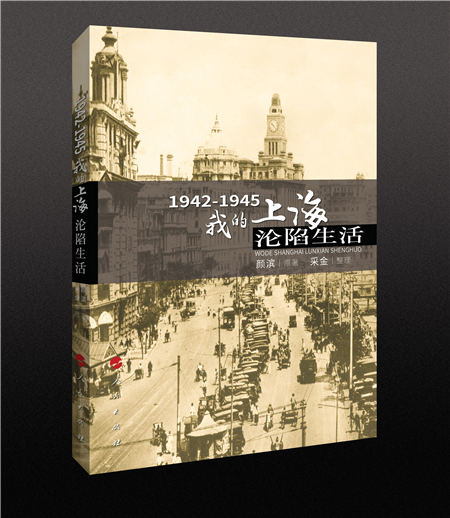 |
|
My Life in Occupied Shanghai (1942-1945) provides a glimpse of common people's life during Japanese military's occupation of the city during wartime. Photos provided to China Daily |
Much material is available on the horrors the common people of Shanghai faced since the Japanese military occupied the entire city on Dec 8, 1941, following the outbreak of the Pacific War. Many Chinese have learned of the pain the occupation inflected on their previous generations through literature, movies, TV series, memoirs and textbooks.
But a series of diaries by Shanghai resident Yan Bin, published recently, reveals some different sides of life during the conflict. My Life in Occupied Shanghai (1942-1945), presents his stories of work, study and romance, among other aspects of daily living, while even in the thick of fear and danger.
"I think life is multifaceted, which cannot be simply summarized by conceptions. But how to fully represent common people's life at such extraordinary times? The best way, I think, is to read material left by people going through those years, among which, diaries are the most precious," the dairies' editor, Wang Jincai, 54, says.
Wang studied history in college and now works at the general office of the Standing Committee of People's Congress of Shandong province. He still pursues his hobby of collecting historical material and personal diaries. About eight years ago, Wang bought Yan Bin's diaries at an online book fair.
Wang's collection of the Yan dairies include entires from 1942, 1944 and 1945, but accounts of 1943 are missing. He also got some letters and diaries of Yan kept after New China was founded in 1949.
He then started posting excerpts from the diaries online given their historical importance. Wang Ping, an editor at People's Publishing House, noticed them and decided to publish them in a printed format this year, as China celebrates the 70th anniversary of victory in the War of Resistance Against Japanese Aggression (1937-45).
Yan's accounts give readers glimpses into his daily life, his experiences, his opinions, his patriotism, his determination to fight against the Japanese aggression and the confidence that the Chinese would win. He also wrote about young Chinese who studied both the Chinese and English languages in their desire to serve the country better.
Some of Shanghai's youngsters at the time refused to get totally consumed by the war. They went on outings with friends, played mahjong, watched Chinese plays and movies, and started their own publications. They worked hard for a living and fell in love.
|
|
|
|
|
|
|
|
